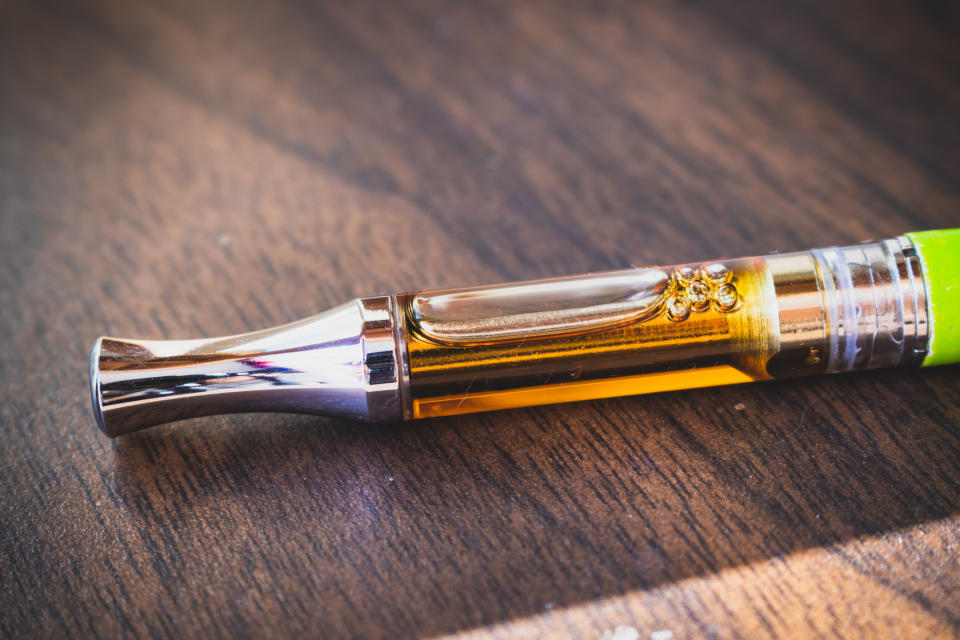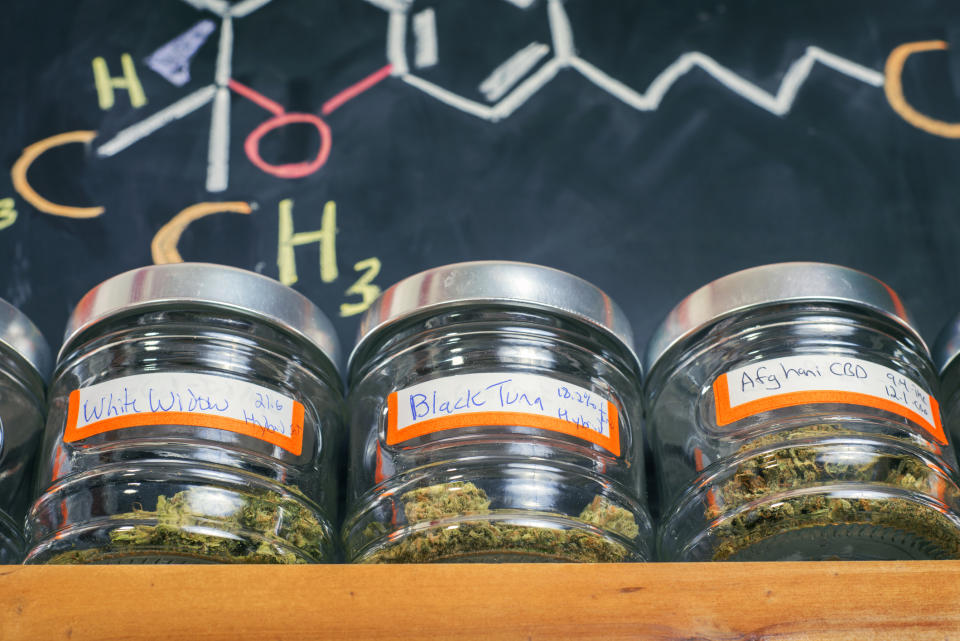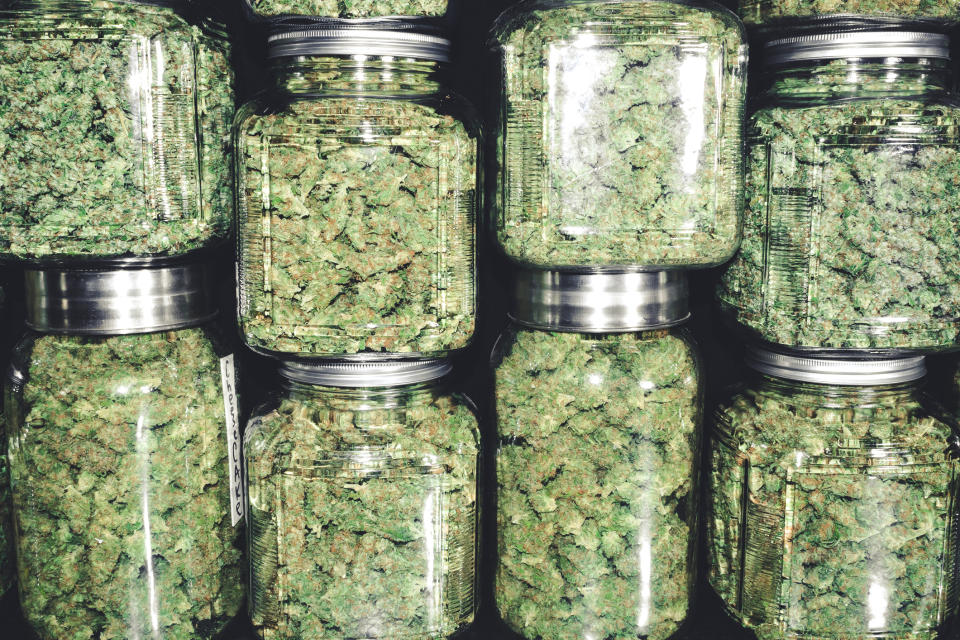3 Reasons Legal Weed Sales Aren't Getting Any Higher in Canada
According to Health Canada, licensed businesses sold 7,115 kilograms of dried flower in January. That was 3.7% less than in December, which hardly looks like a Canadian sales explosion that will help Aurora Cannabis (NYSE: ACB) or Cronos Group (NASDAQ: CRON) make ends meet before they need to ask investors for more money.
There are more than a few reasons for the slowdown, some of which many investors have been trying their hardest to ignore. Here's what you need to know.

Image source: Getty Images.
1. Oil sales are up
Cowen Group's (NASDAQ: COWN) top pot stock analyst, Vivien Azer, ignored the disappointing numbers from Health Canada and reiterated an "outperform" rating for Aurora Cannabis and a $14 price target that was 55% higher than Aurora's closing price ahead of the news.
Analysts who acknowledged the slowdown were quick to point out cannabis oil sales, which rose 4.3% to 7,856 liters. Right now, the Ontario Cannabis Store is selling 15 capsules of Canopy Growth's (NYSE: CGC) Highlands Softgels that contain 2.5 mg of THC for CA$20.90. One gram of dry cannabis flower can still produce enough THC to fill four bottles. Un-encapsulated Cannabis oil runs CA$49 for a tiny bottle that contains 250 mg of THC, which a couple of grams of dry flower can easily provide.
With much wider margins for cannabis oils, lower sales on dry flower probably won't stop gross profits at Canopy Growth and its peers from rising slightly in the first quarter of 2019.
2. Demand's limited
Cannabis consumers can be so enthusiastic that it's easy to forget just how few people find it appealing. Luckily, Statistics Canada conducts anonymous online surveys to keep us informed.
Around 15% of Canadians aged 15 and older reported using cannabis during the last three months of 2018, and just 19% expected to use it in the next three months. More importantly, 55% of the country hasn't tried it, and among this group, just 2% are willing to give it a shot.

Image source: Getty Images.
3. Canadians are going back to MOMs
Statistics Canada also found that among people who used cannabis within the previous three months, around 18% reported spending at least CA$250 per month. These patients are heading back to illegal mail-order marijuana (MOM) services and probably won't return.
Cannabis consumers who buy a few grams a year might not have an issue with the 32.9% premium they'll pay for licensed marijuana, but that isn't the only reason Canadians love MOM. The Ontario Cannabis Store is becoming famous for one- to three-day deliveries that are frequently late and require a phone call to figure out what happened to your order.
Canada's licensed adult-use and medical retailers enjoyed an initial rush of customers late last year. A slowdown just four months into the country's adult use program, though, suggests reports of unexplained wait times, and a lack of product selection has driven customers away from licensed producers and right back to MOMs.
Unlike MOMs throughout the EU, those in Canada hardly seem illegal. Most insist on some form of physician screening and age verification. They also tend to accept PayPal, ship products quickly and discreetly through the Canada Post, and allow you to track your order.
On top of selection, price, and service, MOMs have the legal market beat when it comes to consumers with expensive tastes. That's because they can stock carefully cultivated, artisan products from a wider variety of mom-and-pop operations. Government-run retail outlets are limited to big producers with the means to secure licenses, and consumers don't even get to look at a picture of the product they're buying for a premium.

Image source: Getty Images.
The lower volume only part of the problem
Cannabis producer problems are about to be compounded by sinking prices. In Oregon, it took less than three years for oversupply to cut prices consumers pay for cannabis in half, and some desperate producers have been forced to sell their crops for as little as $50 per pound.
Based on January's numbers, annualized demand for legal cannabis is around 85,000 kilograms of dried flower and 94,000 kilograms of oil. Aurora Cannabis is an industry leader that finished December producing around 150,000 kilograms per year and should be able to reach 700,000 kilograms in 2021.
Even though Aurora will probably be able to meet the entire country's demand for legal cannabis on its own, 10 of Canada's licensed producers could yield a combined 3.3 million kilograms annually. That's enough legal weed to supply the country's 4.6 million cannabis consumers with more than they know what to do with. And remember, that 3.3 million kilogram figure doesn't include products from hundreds of non-licensed producers that raked in two-thirds of household cannabis spending in the fourth quarter of 2018.
Sliding demand and soaring supplies of legal weed in Canada will hammer prices. If Health Canada doesn't adjust accordingly, Aurora and its peers will be left with mountains of marijuana they can't sell, and bills they can't pay.
More From The Motley Fool
Cory Renauer has no position in any of the stocks mentioned. The Motley Fool has no position in any of the stocks mentioned. The Motley Fool has a disclosure policy.

 Yahoo Finance
Yahoo Finance 